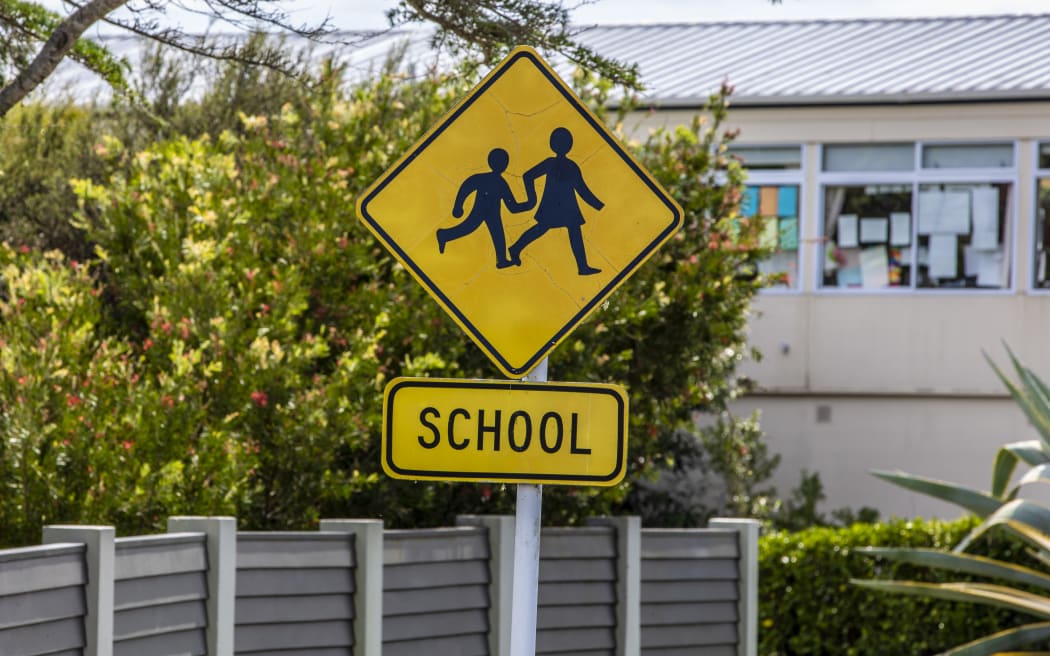
Curriculum changes are in prospect as students head back to school for 2024, with the coalition government aiming to improve academic achievement through standardised testing and compulsory reading, writing and maths hours. Photo: RNZ/ Nick Monro
Parents and teachers are gearing up for the new school year, with a big curriculum shake-up on the cards.
The coalition government has signalled it will be working to improve numeracy and literacy achievement as standards slip across the sector.
Alice McCullagh is sending her five-year-old son to school for the first time this week and wants him to have fun and be curious.
Her only concern is that his achievement is not made into a race against his peers.
"Putting a finish line as it is, you know for whatever the standard is, putting a finish line in the same place for every kid doesn't make it a fair journey."
The government has been clear that it wants to improve academic achievement with standardised testing and compulsory reading, writing and maths hours.
McCullagh said she trusted her school to allow her children to achieve in their own way.
"It might be success in the arts, it might be that they're top in maths or whatever but that they feel success regardless of a test or assessment."
Patrick Tuapola's five-year-old son is also starting school this week and he said a strong emphasis on reading, writing and math testing was not what his family wanted.
"We're more looking for him developing friendships and empathy and other sort of soft skills. If the curriculum changes such that it's much more focused on testing, we're a little less comfortable with that to be honest".
Education researcher Nina Hood agreed schools should offer a holistic education, but she said ensuring children learn the basics was part of that.
"Developing those early literacy and numeracy skills are critically important for students' achievement across the schooling system and on into life. So, making sure that we're getting that teaching right in the first few years is really important."
The Education Hub founder said new assessments could unintentionally pit students against one another, so educators and the government should be wary of that.
But she said ultimately test results were for the teacher, not the children.
"To be able to understand where each child in their class is at and where they need to be able to go next in their learning. Therefore, being able to target the learning to each child to the specific areas of need and development that that child has."
Going into the new school year, the primary teachers' union is concerned the government's curriculum shake up is misguided.
NZEI TE Riu Roa president Mark Potter believed it would not improve academic achievement.
"What we need change of is the emphasis in the investment in education into better ratios, so teachers don't have as many children to deal with, better learning support so every child who has different needs gets those met. They're the reasons we are struggling to get every child across the line."
Auckland Primary Principal's Association president Kyle Brewerton said most schools were doing their best but there was work to be done.
He hoped the government's plans would include an increase in support to help teachers upskill.
"Without proper training and support, having a broad curriculum poses challenges because in order to deliver what's necessary you need to be well equipped and well trained and again, that's been lacking".
Under the government's 100-day plan, primary and intermediate schools are expected to teach reading, writing and maths for an hour a day in each subject from Term 1.
And effective from Term 2, cellphones will be removed from all classrooms.
Education Minister Erica Stanford has said these changes will ensure all children get a "world-leading education".






